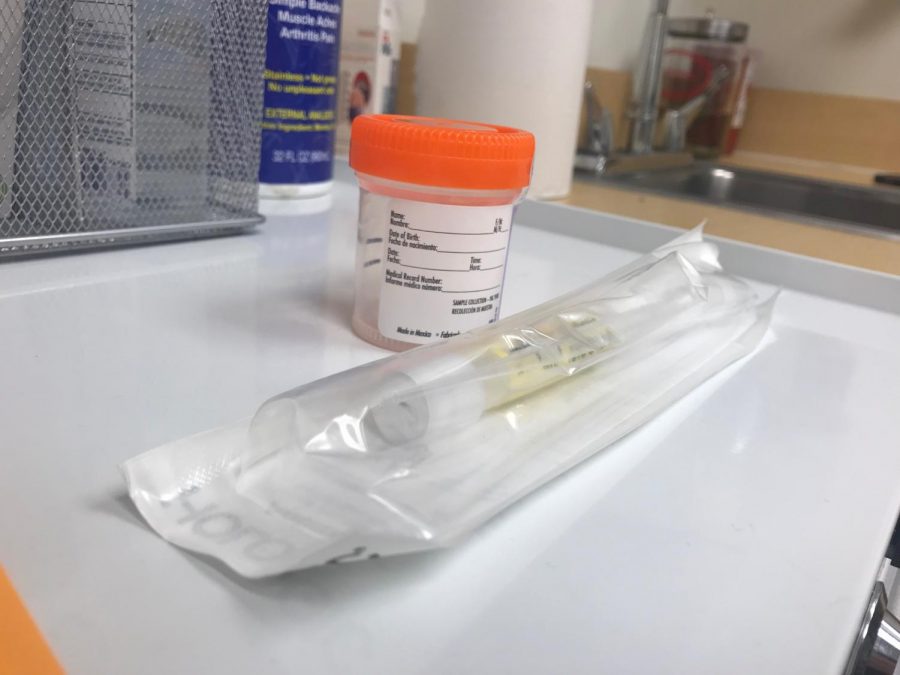Health Center offers free STD testing, referrals
August 25, 2018
AACC’s Health Center is offering free tests for sexually transmitted diseases for students and faculty members this semester.
The college has partnered with Anne Arundel County and the Maryland Department of Health to test, diagnose and treat gonorrhea and chlamydia.
“It’s treatable,” Brooke Raino, an employee in the Health Center, said. “You just have to have the knowledge and be aware of it.”
“It’s all urine testing, so that’s an easy test to collect and run,” Beth Mays, the manager of Health Services, said.
“We get a specimen, send it to the state lab, the state lab tests it, sends it off to the county, and the county forwards the results to us,” she said.
According to Mays, the program offers treatment for patients who test positive by referring them to nearby healthcare providers for antibiotics.
“It’s important to get tested and the fact it’s free is a huge plus,” Will Smith, a first-year cybersecurity student, said.
The county has offered free HIV tests for years, but Mays said she hopes the on-campus tests will lower the number of cases of gonorrhea and chlamydia in the county.
Raino said she believes once students know about the program on campus they will get tested because chlamydia and gonorrhea are prevalent STDs among college students.
In 2018, the Maryland Center for Sexually Transmitted Infection Prevention reported 2,234 cases of chlamydia and 583 of gonorrhea.
“The gonorrhea and chlamydia results have skyrocketed within the past years, which is unbelievable,” Mays said. “Gonorrhea was gone for a while but now the numbers have increased tremendously.”
In a survey by the CSTIP and Maryland Department of Health, 15- to 24-year olds are most likely to become infected with gonorrhea and chlamydia.
Gonorrhea is more common in recent years because fewer teenagers are using condoms, according to the National Centers for Disease Control and Prevention.
The number of Anne Arundel County residents with these diseases more than doubled from 224 in 2008 to 583 last year.
The number of county residents infected with chlamydia also doubled since 2008, by 2,234 cases.
Anyone on campus, regardless of financial and insurance status, can receive treatment.
Raino said one student recently took the test at the Health Center just so she could “find out if she’s healthy.”
“It sounds like a great program,” Morgan Lada, a first-year student, said. “Not a lot of college students have health insurance or the money to get treated.”
“Knowledge is power,” Raino said. “When you know about your body … and you have access to tests, it will help you tremendously,” she said.












